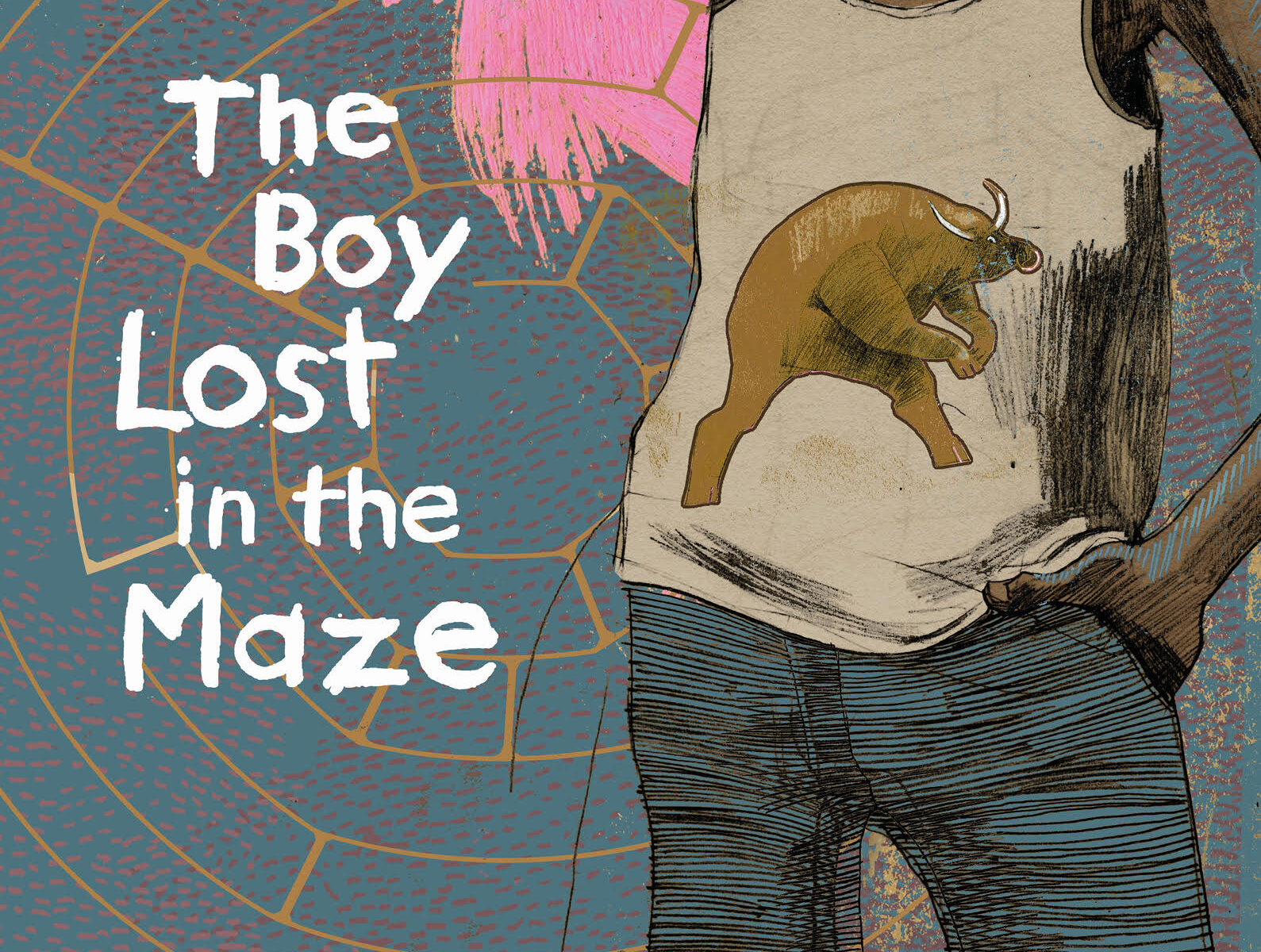Publishers Otter-Barry Books created this wonderful discussion guide to accompany Joseph Coelho’s The Boy Lost in the Maze.
Why not use it in class before your trip to Joseph’s event as part of our Baillie Gifford Schools Programme!
Level:
Third and Fourth / Senior Phase
Explore themes of:
√Family √ Choice √ Myth √Masculinity √ Self-Discovery
Subject Checklist:
√ Expressive Arts √ English Language √ Social Studies √Creative Writing √Alternative Form
Note to teachers: These books contain some material that may not be suitable for some students. We recommend that teachers read the books carefully before using it in the classroom or recommending it to students and/or seek parental guidance.
At a Glance
The Boy Lost in the Maze weaves a myth with a modern coming-of-age story about Theo, who is searching for his father. See if you can find out what myths are, who told them and why. Can you find examples of myths from different cultures? What do you think might intrigue or appeal to Theo about the myth of Theseus? You might find it helpful to read Joseph Coelho’s notes on Theseus in Greek Mythology at the back of the book too. (p318)
Discussion Questions:
The poem Theo First Hears of Theseus says
‘Theseus’ story
is about manhood –
about fathers and sons,
about nature and nurture,
about legacy and destiny,
about parents and their children
and what it means to be a man.’ (p10)
- Can you find examples of how Theseus’ story ties with each of these themes?
- Which themes, if any, do you think link with Theo’s story?
- Do you feel the two stories interconnect?
- Why do you think finding his father is so important to Theo?
- How might this make his mother feel and do you think this explains any of her actions in the book?
In There is a Stone in My Chest Theo writes ‘Mark and I map the future’.
- What do you notice about Mark’s plans and how do they compare to Theo’s thoughts in the poem?
- You might like to map out your own future. What do you hope will happen and why? Are there steps you can take to help make this happen?
In the barber shop, Theo is told he will never be accepted.
- Why do you think he is told this?
- Can you think of reasons why being accepted might feel particularly important to Theo?
- Who do you feel accepted by and why? What difference does feeling accepted make to the relationships you have?
For futher interest: Theo visits the British Museum to try to research his project. You can find out more about the Ancient Greeks using artefacts at the British Museum by visiting or by exploring the website www.ancientgreece.co.uk
Theo writes a letter to his father and struggles to decide how formal he should be and whether it would be best to write this by hand or to type it. He feels very aware of how this might appear to his father.
- Why not write a letter to somebody you care about?
- How will you start this and what will you say?
Theseus meets six enemies on his quest. Do you think any aspects of Theo’s life form a quest and are there parts to his quest as there are to Theseus’s? You might find it useful to think about:
- The people that Theo meets through the book and who he has to try to
convince to help him - The struggles or obstacles he encounters along the way
Choice is a recurring theme throughout the book.
- What examples of choices can you find which Theo faces?
- Readers are encouraged to make their own choices when reading parts of the story, what choices did you make and how did you reach your decisions?
- Can you think of three pieces of advice to give to people to help them make good choices?
Cercyon challenges Theseus to a riddling match in the poem Riddling.
- Can you and your friends find riddles or make up riddles and challenge one another to your own riddling matches?
- Who is the prize puzzler who comes up with the toughest riddles to work out and who can work out the most answers?
The poem Not All Monsters ends with the lines
‘Not all monsters have claws
and not only men protect the land.’ (p150)
- What do you think the poem is suggesting about the villagers and the monster?
In All About the Minotaur Theo writes
‘I choose
to make my coursework
a series of poems
about his search for his father.’ (p14)
- Has reading the book changed your thoughts or helped you to learn more about myths or poems?
Further reading– If you are interested in finding out more about myths and fairytales which have inspired re-imaginings, you might like to try the following books:
The Girl Who Became a Tree by Joseph Coelho, illustrated by Kate Milner
Medusa by Jessie Burton, illustrated by Olivia Lomenech Gill
Circe by Madeline Miller
Cinderella is Dead by Kalynn Bayron
Rapunzel’s Revenge by Shannon and Dean Hale, illustrated by Nathan Hale
This Discussion Guide was written by Jake Hope, Publishing Consultant and Chair of the CILIP Working Party for Diversity and Inclusion in the YOTO CARNEGIE AWARDS.
